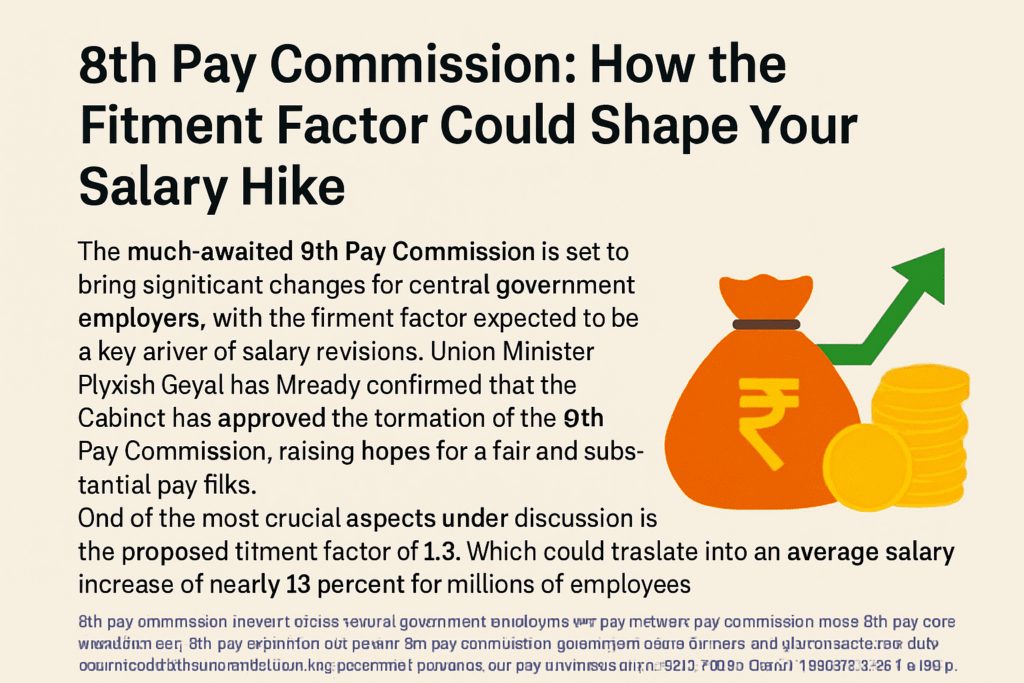The much-awaited 8th Pay Commission is set to bring significant changes for central government employees, with the fitment factor expected to be a key driver of salary revisions. Union Minister Piyush Goyal has already confirmed that the Cabinet has approved the formation of the 8th Pay Commission, raising hopes for a fair and substantial pay hike. One of the most crucial aspects under discussion is the proposed fitment factor of 1.8, which could translate into an average salary increase of nearly 13 percent for millions of employees.

The fitment factor acts as a multiplier applied to the current basic pay to determine the revised salaries, pensions, and allowances for government employees. It plays a central role in ensuring that salary adjustments align with inflation, the cost of living, and the government’s financial capacity. For instance, in the 7th Pay Commission implemented in 2016, the fitment factor was set at 2.57. While this did not mean salaries increased by 2.57 times, it ensured that the minimum basic pay rose to ₹18,000, resulting in an actual salary hike of 14.3 percent after factoring in the reset of dearness allowance.
A government employee’s salary structure is composed of multiple components—basic pay, dearness allowance (DA), house rent allowance (HRA), and transport allowance. On average, basic pay constitutes 51.5 percent of the total salary, DA about 30.9 percent, HRA roughly 15.4 percent, and transportation allowance around 2.2 percent. When a new pay commission is implemented, the DA is reset to zero because the base index is recalculated, making the fitment factor’s role even more critical in determining the real increase in take-home pay.
If the proposed 1.8 fitment factor under the 8th Pay Commission is approved, employees can expect a decent but balanced salary boost, ensuring the government can maintain fiscal discipline while addressing employee needs. The decision will directly affect not just active central government staff but also pensioners, as it impacts pensions and retirement benefits. With the commission already in motion, employees are eagerly waiting for official announcements on the exact fitment factor and implementation date, knowing that even a small change in the multiplier can make a big difference in their monthly earnings and financial stability
